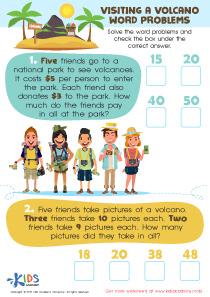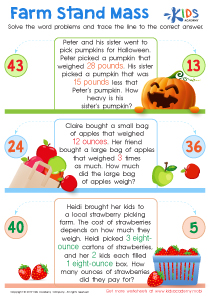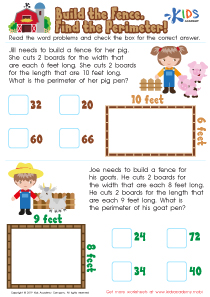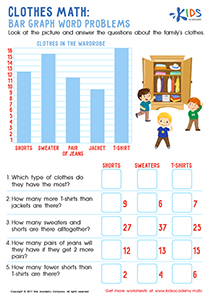Addition skills Normal Addition and Subtraction Word Problems Worksheets for Ages 3-9
4 filtered results
-
From - To
Our detailed "Addition Skills: Normal Addition and Subtraction Word Problems Worksheets for Ages 3-9" provide a robust foundation for young learners to master essential math concepts. Designed specifically for children between ages 3-9, these worksheets present engaging word problems that enhance critical thinking and problem-solving skills. Kids will build confidence as they practice real-life scenarios, improving their ability to add and subtract through interactive exercises. Ideal for parents and teachers, these worksheets offer a mix of fun and challenge, making learning math enjoyable and effective. Help your child excel in math with these comprehensive resources!
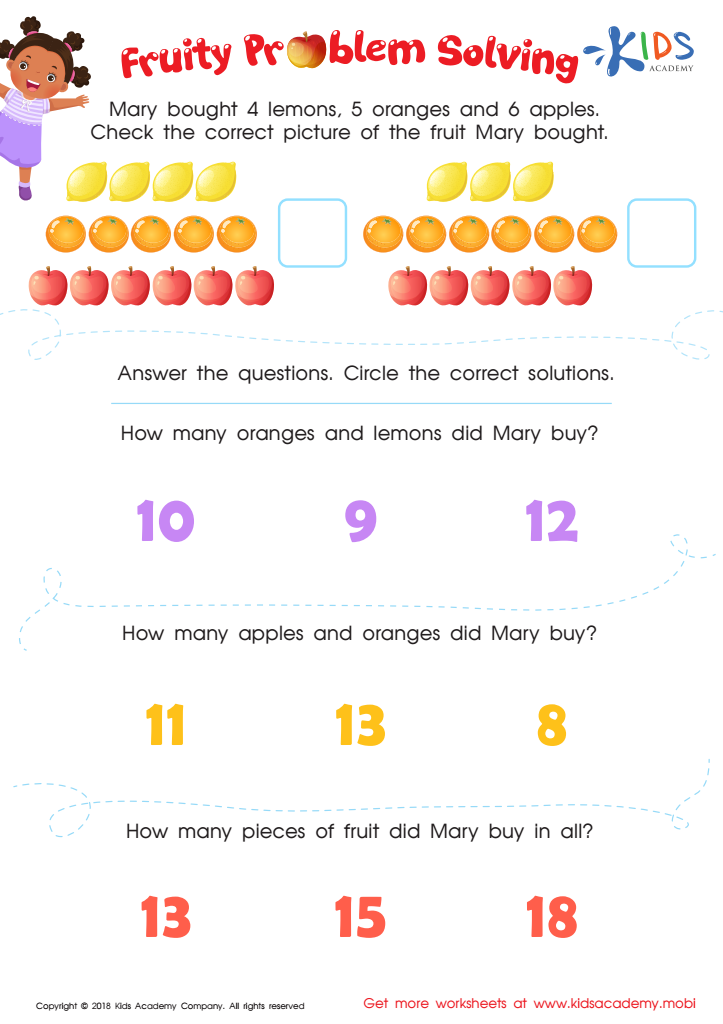

Fruity Problem Solving Worksheet


Adding Flower Petals Worksheet
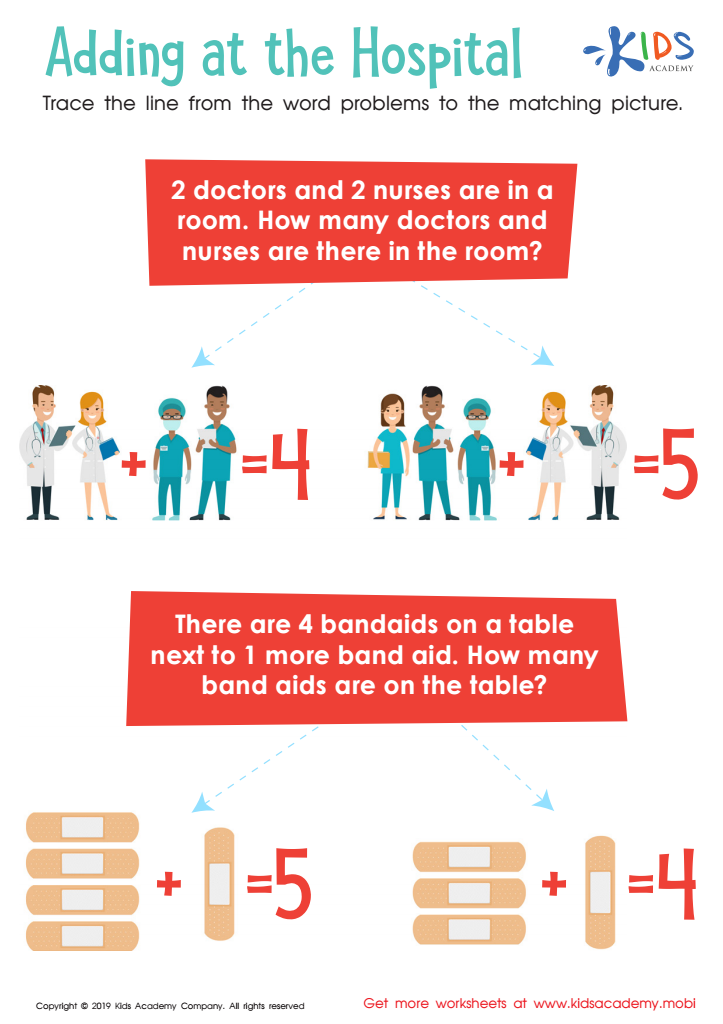

Adding at the Hospital Worksheet
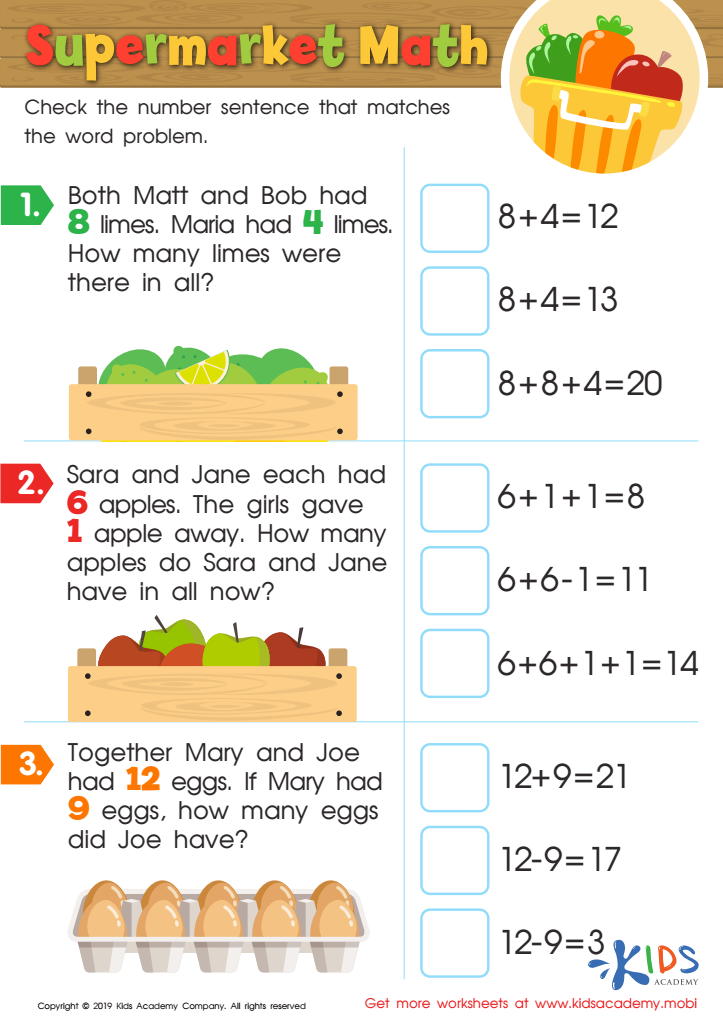

Supermarket Math Worksheet
Parents and teachers should prioritize teaching addition skills and normal addition and subtraction word problems to children aged 3-9 because these foundational math skills are essential for cognitive development and practical life applications. Early exposure to these concepts helps build strong numerical fluency and problem-solving abilities, which are critical as children progress in their education.
Normal addition introduces kids to the basics of combining quantities, laying the groundwork for understanding more complex arithmetic operations. Subtraction teaches the concept of comparison and managing differences, highlighting the idea of taking away or reducing quantities. Both operations are fundamental building blocks of math, vital for future learning in topics such as multiplication, division, and algebra.
Word problems, on the other hand, offer context and practical applications of these skills. They help children develop critical thinking, comprehension, and analytical abilities by framing mathematical operations in real-world scenarios. For instance, figuring out how many apples are left after some are eaten helps them visualize and solve problems, making abstract numbers more meaningful.
Together, these skills not only support academic success in math but also promote logical thinking and functional numeracy that children will use in everyday life. Investing in this foundational stage fosters a positive attitude towards math and enhances lifelong learning skills.
 Assign to My Students
Assign to My Students








